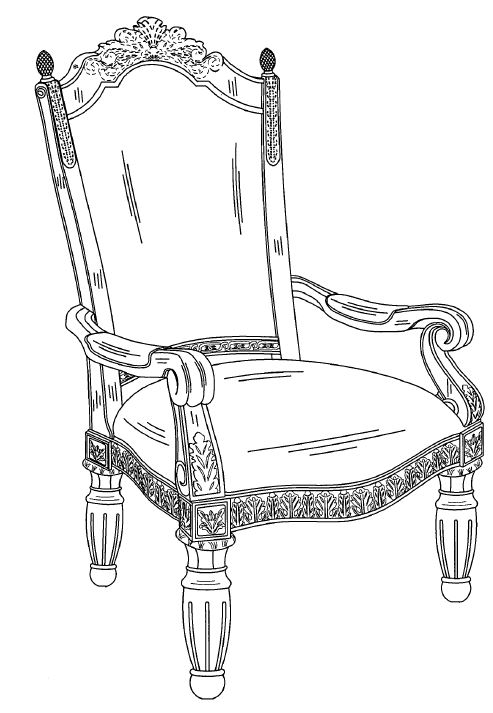 Amini designs and sells unique furniture at various tradeshows and through distributors and its furniture designs are featured in magazines and on popular websites. Amini obtains intellectual property protection for its furniture designs, including three copyright registrations (Reg. Nos. VA 1-627-918; VA 1-627-828; VA 1-627-832) and three design patents (Design Patent Nos. D592,893 for a table; D644,852 for a China cabinet-buffet; and D576,409 for a chair). These registrations are for various items such as china cabinets, arm chairs, and tables.
Amini designs and sells unique furniture at various tradeshows and through distributors and its furniture designs are featured in magazines and on popular websites. Amini obtains intellectual property protection for its furniture designs, including three copyright registrations (Reg. Nos. VA 1-627-918; VA 1-627-828; VA 1-627-832) and three design patents (Design Patent Nos. D592,893 for a table; D644,852 for a China cabinet-buffet; and D576,409 for a chair). These registrations are for various items such as china cabinets, arm chairs, and tables.
Amini is suing Cosmos Furniture, both its U.S. and Canadian companies, for copyright infringement, design patent infringement, and breach of settlement agreements. In a prior litigation, Amini sued Cosmos Canada for copyright infringement and design patent infringement. Before trial, Cosmos Canada settled by agreeing to cease sales of the accused furniture and removing the products from their website. This 2009 agreement extended to all companies, affiliates, and employees related to Cosmos Canada, which includes Cosmos U.S.
In 2011, Amini allegedly learned that many of the items in the settlement agreement were reintroduced to the website and still sold. Amini notified Cosmos and another settlement agreement was reached. This second settlement agreement required Cosmos to exercise due diligence to avoid infringing Amini’s designs, and specifically itemized Amini’s intellectual property rights that could not be violated.
In 2012, Cosmos sold furniture allegedly infringing Amini’s logo and falsely represented that their furniture was made at the same factory as Amini’s. The litigation led to a third complaint resulting in a 2013 settlement agreement. Recently, Amini allegedly learned that Cosmos violated the three agreements, and filed the current suit. Amini argues that due to the previous settlement agreements, Cosmos was aware Amini’s intellectual property rights and continued to willfully infringe its patents and copyrights.
Copyright protection does not extend to furniture designs because they’re useful articles, unless the design features can be distinguished and stand alone. Carol Barnhart Inc. v. Econ. Cover Corp., 773 F.2d 411 (2nd Cir. 1985). In Barnhart, the court found that the artistic elements of the mannequins could not be separated from their useful features and were therefore not eligible for copyright protection. Id.at 419. Here, because Amini has copyright registrations, the Copyright Office deemed the artistic elements of Amini’s furniture separable from their useful features. To broaden its protection, Amini has also obtained design patent protection as a failsafe to copyright protection denial.
Amini requests damages for copyright infringement under the Copyright Act. 17 U.S.C. § 101. Amini also requests complete accounting for all revenue for infringing the design patents and preliminary and permanent injunctions. 35 U.S.C. § 289.
The case is Amini Innovation Corp. v. Cosmos Furniture, 2:18-cv-06343 (C.D. Cal. 2018).
 Los Angeles Intellectual Property Trademark Attorney Blog
Los Angeles Intellectual Property Trademark Attorney Blog

